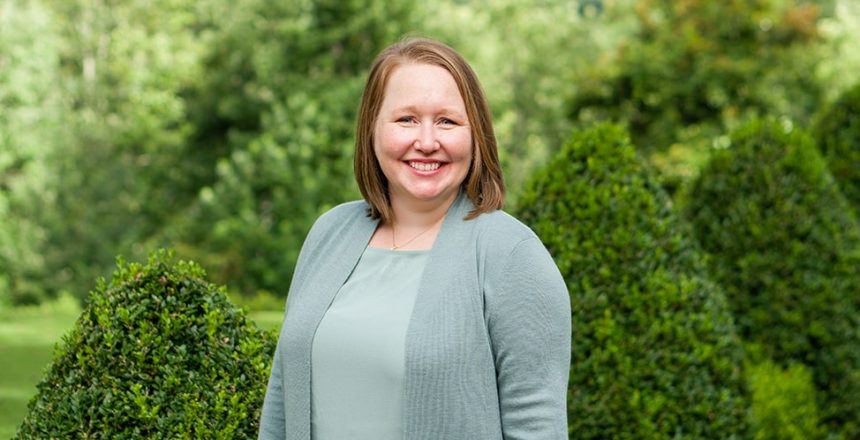This month marks the one-year anniversary of launching my financial planning firm, Abeona Wealth. A year ago it seemed like a pretty crazy thing to start a new business in the midst of a global pandemic. But as I’m sure many of you can agree, viewing the world through the lens of a changed world meant the time for positive change had never felt more pressing.
I launched Abeona Wealth with the mission of providing approachable and empowering financial advice and decreasing the gender wealth gap, and I truly see the impact of this important work. I’ll admit it was a scary step, but am so proud to say that my first year here at Abeona has been a great success. I have found my feet as a financial business owner, and never felt more certain that the path I’m walking is the right one for me.
There have been many contributing factors to my successful first year in business, but I believe much of it has been due to the Covid effect; it is bringing us back to the things that really matter, and stripping away the superfluous. We want to feel more meaningful connections to the people we have in our lives. We want good financial advice presented in a way that is not intimidating. and can be easily understood.
I am so grateful to all my clients, who have trusted me with their investments and financial planning, as well as those who have referred their friends, family, and clients to me. As both a CFP(r) professional and a CFA charterholder, helping my clients is a responsibility I feel honored to be entrusted with.
So in the spirit of my one-year anniversary, I wanted to share 12 things that I’ve learned over these last 12 months in business. Here are lessons, insights and awakenings to help you on your own professional and financial journeys.
12 Lessons Learned from Being a Financial Business Owner
Lesson #1: Build a Business Doing What You Love
I left my career in teaching a decade ago to start a job in finance. In what some might consider a crazy jump, I worried I was making a big mistake, and would lose the part of me that likes to help people.
But what I found is that financial planning and investment management is very much a helping profession. As a financial business owner, I help my clients solve financial problems, gain the confidence to make sound choices, and put them on a path to building wealth and security.
My purpose and passion feel aligned, and I feel so lucky to say that I honestly love what I do. For me, there is no better way to earn a living than by helping others. Building a business based on doing what I love has provided the perfect foundation for success.
Lesson #2: Most People Have Not Been Taught About Personal Finance
There is a dearth of good personal finance education in our society, and it is evident across all sections of the population. Whether you are from a wealthy, highly educated background or were a first generation college graduate, many Americans have simply not been taught many of the key tenets of personal finance and investing.
Additionally, there are some differences in what boys and girls are taught about money. Research has shown that girls are taught about fiscal restraint and budgeting by their parents while boys are taught about building wealth.
Lesson #3: People Feel Overwhelmed by Financial Decision Making
Too many people are not taking action to improve their financial life because it is overwhelming. I’ve found that many people have stayed on the sidelines of investing or taking control of their financial life because they don’t know where to start.
In particular, starting to learn about your personal financial situation after a major life change, like losing a spouse or going through a divorce, can be particularly overwhelming and filled with anxiety and emotional complexity.
Research has shown that by simply taking an action in the direction of your goal, your anxiety reduces. Start by taking one step at a time toward financial wellness. And if you feel that a professional financial guide is right for you, please do reach out.
Lesson #4: Money Shame Is Real, and Very Common
I have talked to hundreds of people over the past year – business owners, widows, women building their lives back after a divorce, young professionals and retirees. And a common theme among them all, is feeling ashamed of a financial decision that they’ve made in the past
Shame is one of the most common and powerful emotions associated with money, and can affect anyone, no matter how outwardly successful a person might seem. It stops people in their tracks and keeps them from reaching out and moving forward.
Yes, maybe things would have been different if a different choice had been made, but the only way forward is to move forward. Take some time to understand where you are and where you want to go, and surround yourself with the right people to help you on your journey.
Lesson #5: We Need to Get Back to Basics with Personal Finance
I love a TikTok cat video as much as the next person, but I don’t think I would count on the platform for any financial advice. Fun gimmicks or brand new strategies often don’t deliver what solid financial planning principles will afford you.
Just like we have to tune out the noise in traditional media headlines to stay disciplined and on track on our financial plan, content creators on social media are putting out “content” designed to increase views and clicks, not necessarily give advice in your best interest.
Lesson #6: Women Are Not, In Fact, Less Risk Tolerant
It is commonly assumed in the financial industry that women are less risk tolerant and therefore do not want to invest. I find that nothing could be further from the truth. In fact, women are better investors than men by several measures, including pure outperformance and making less impulsive decisions.
With a background in education and psychology in addition to finance, I work to present information that is clear and understandable so that my clients can feel comfortable making investing decisions.
The financial industry as a whole has done a poor job of explaining investment risks (all risks, not just market risk), and when we do better explaining it, as I work to do, more women take the necessary steps to protect their financial future.
Lesson #7: Planning Should Drive Investment Decisions
Sadly I don’t have a crystal ball to predict market movements, which makes it quite difficult to help someone reach their long and short term goals just by focusing on investing. Instead, my clients respond to goals-based investing.
I help my clients develop and articulate their values and goals, and the investment decisions that I make are all intended to help them get there over time. We can harness the power of the financial markets in a way that is disciplined and focused.
Oftentimes, new clients come to me with a portfolio of investments, and even though they worked with a broker for many years, they still don’t know what the money is for or what it can provide. Investing needs to happen in the context of your goals and situation.
Lesson #8: It’s Still Hard to Time the Market
The last 18 months have been a wild ride in the stock market, from a sharp, 35+% drop in February and March 2020 to a confusing rebound in which the economy and the stock market didn’t seem to match up.
Now, three-quarters of the way through 2021, we have experienced frequent market records and strong year-to-date performance despite continued uncertainty and the rise of the Delta variant.
All that to say, if I was trying to guide my clients through turbulent markets by predicting where it would go next and either buying or selling out of the market, I wouldn’t have done a good job for them. Disciplined investing with risk levels that match your goals keep investors on track.
Lesson #9: It Is Hard to Pick Which Part of the Market Will Outperform
It may be tempting to switch asset classes based on predictions about future performance, but the chance that you (or an active fund manager) will consistently get it right are low.
Looking at the image below, the patchwork dispersion of colors shows that the relative performance of asset classes is unpredictable across periods. Investors who follow a structured, diversified approach are well positioned to seek returns whenever and wherever they occur.
Diversification also reduces the risk of being heavily invested in an underperforming asset group in any given year. The past twelve months have been no exception!
Annual Returns by Market Index

Notes: In USD. US Large Cap is the S&P 500 Index. US Large Cap Value is the Russell 1000 Value Index. US Small Cap is the Russell 2000 Index. US Small Cap Value is the Russell 2000 Value Index. US Real Estate is the Dow Jones US Select REIT Index. International Large Cap Value is the MSCI World ex USA Value Index (gross dividends). International Small Cap Value is the MSCI World ex USA Small Cap Value Index (gross dividends). Emerging Markets is the MSCI Emerging Markets Index (gross dividends). Five-Year US Government Fixed is the Bloomberg US TIPS Index 1–5 Years. S&P and Dow Jones data © 2021 S&P Dow Jones Indices LLC, a division of S&P Global. All rights reserved. Frank Russell Company is the source and owner of the trademarks, service marks, and copyrights related to the Russell Indexes. MSCI data © MSCI 2021, all rights reserved. Bloomberg data provided by Bloomberg. Chart is for illustrative purposes only. Indices are not available for direct investment. Their performance does not reflect the expenses associated with the management of an actual portfolio. Past performance is not a guarantee of future results. Diversification does not eliminate the risk of market loss.
Lesson #10: Surround Yourself with a Strong Support Network
My firm is part of a collaborative group of women-owned financial advisory firms called the Equita Financial Network. Equita enables me to offer the high-quality resources and capabilities of a large firm while maintaining my autonomy and direction as a boutique firm.
From high quality investment research and due diligence to best in class technology offerings, Equita’s resources afford me the ability to offer the best to my clients. In addition to the operational support, Equita’s members have served as a community of peers – we support one another with ideas, a listening ear, and a belief that each of our strengths can be used to help the other when needed.
Lesson 11: Knowledge Brings Agency, Ownership, and Empowerment
This phrase is one of my key values, and I have seen it play out over and over again with my clients. With financial education given in digestible pieces and clear actions to take, I have seen my clients’ mindset change over time. They begin to feel ownership over their financial wellness and start taking empowered actions in their financial and personal lives.
Lesson #12: Don’t Forget to Enjoy the Ride
Running a business is tough – whether you’re just starting out, or you’re three decades in. Most business owners will tell you they work harder for themselves then they ever did for an employer. So amidst all that, it’s important to remember to take a step back and really look at what you have done.
Allow yourself to take pride in the achievement of building something from nothing, and really pay attention to the high, lows, and everything in between. Being a financial business owner is a wild, scary, beautiful ride. Hold on tight, and enjoy every moment.

